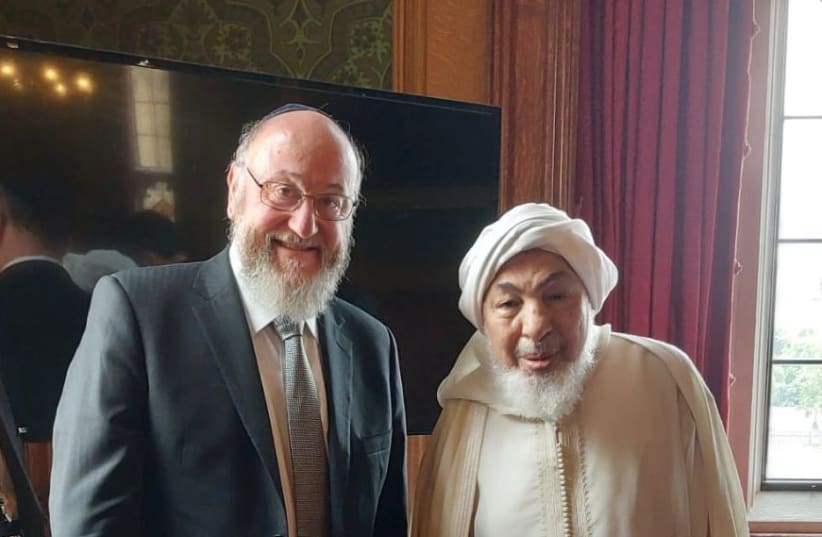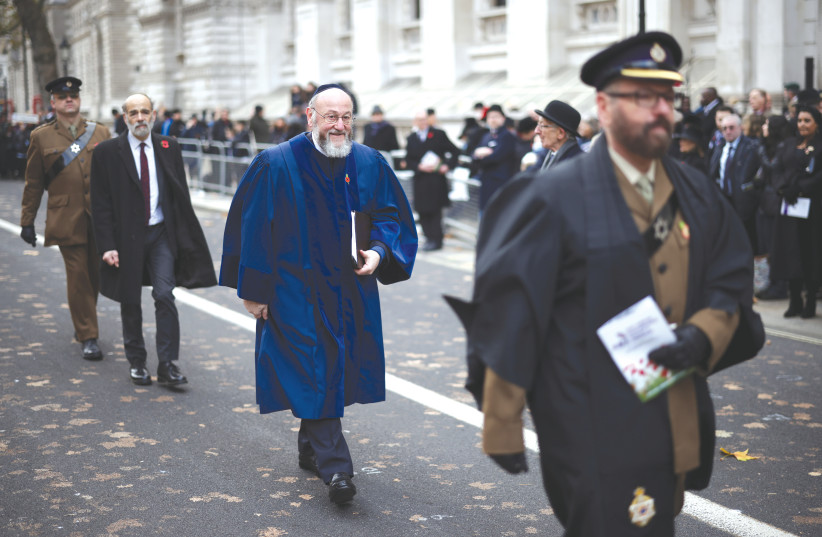A historic conversation took place on Thursday between two leading global religious figures, who discussed Islamic-Jewish relations and their shared visions for the future. The two that met were Islamic Scholar Shaykh Abdallah bin Bayyah and Chief Rabbi Ephraim Mirvis. They spoke in front of leading UK Jewish and Islamic leaders at an event titled “Loving, Kindness, Humanity and Flourishing as Faith Communities in the UK.”
The event was chaired by Patricia Hillas, Chaplain to the House of Commons and hosted by Lord Walney at the House of Lords. The event was the first partnered event between the Abu Dhabi Forum for Peace and the Office of the Chief Rabbi of the UK.
Bayyah is currently visiting the UK to attend the International Ministerial Conference on Freedom of Religion or Belief taking place next week. He is utilizing his time with religious leaders and government officials from all over the world to amplify the message of the Abu Dhabi Forum for Peace.
Founded by Bayyah in 2014, the Abu Dhabi Forum for Peace is a groundbreaking initiative that addresses the issues within global Islam in a way that is both firmly grounded in tradition and conscious of the contemporary context. The forum is inspired by the work of the Shaykh to promote dialogue and coexistence between the Abrahamic faiths on the basis of scripture and classical Islamic teaching.
One of the world’s leading experts of the principles of Islamic Law, the Shaykh is widely recognized as a leading authority in the discourse of tolerance. He has dedicated much of his career to illustrating the theological legitimacy of values such as equal citizenship, the rights of minorities, and harmony between national and religious identity between Islam and other faiths.
Key messages from the event
- The important place of religion and religious leaders in international affairs and peacebuilding
- The unique Islamic and Jewish values that protect the rights of minorities and contribute to mutual flourishing
- The need to recognize shared values and what peace among religions looks like in the present day
- The key role of religious leaders in peace-making
- Attempts to inspire ethical perspectives based on religious values through documents such as the Marrakesh Declaration.
At the event on Thursday, Sheikh bin Bayyah said that “the path to peace requires us to protect the rights of all faiths in our societies - in the UAE, UK and elsewhere - but it also requires a robust theology for living together as articulated in my writings, especially the Charter for a New Alliance of Virtue.”
“A historic paradigm shift in Muslim-Jewish relations is underway, harnessing the goodwill generated by a number of impressive new frameworks for dialogue,” Rabbi Mirvis said. “Seizing this opportunity is an urgent priority.
"We have a responsibility to build on the relationships that have been forged and to usher in a new era of engagement between our faith communities, in this country and beyond, for the benefit of the societies of which we are part.”
UK Chief Rabbi Ephraim Mirvis

